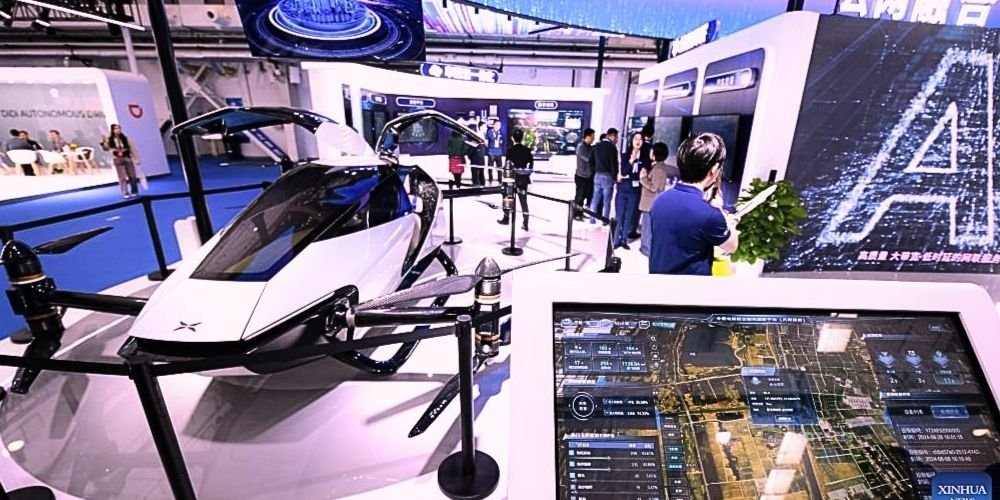Key Points
- China is developing a comprehensive plan for the intelligent connected vehicle (ICV) industry, focusing on vehicle-road integration and hardware-software collaboration.
- The country has established a complete industrial system for ICVs, covering chips, sensors, and vehicle-cloud connectivity.
- Regulatory frameworks for autonomous driving are being finalized, with self-driving vehicles close to approval for public road use.
- Companies like Xiaomi and Geely are making strides in ICV innovation, while Volkswagen commits to launching 40 new models in China by 2027.
China is positioning itself to lead the future of intelligent connected vehicles (ICVs), with plans to strengthen autonomous driving, advanced supply chains, and global partnerships. During the 2024 World Intelligent Connected Vehicles Conference in Beijing, held from Thursday to Saturday, government officials and industry experts discussed the country’s growing commitment to this high-tech sector.
Jin Zhuanglong, China’s Minister of Industry and Information Technology, announced that the nation is drafting a comprehensive plan for developing the ICV industry. This strategy will focus on integrating vehicles with road infrastructure and promoting collaboration between hardware and software systems. Jin highlighted China’s progress in developing an ICV industrial system, including advancements in chips, sensors, computing platforms, and vehicle-cloud connectivity.
ICVs are vehicles enhanced with artificial intelligence and communication technologies that allow them to interact with other cars, the cloud, and infrastructure like roads. China’s advancements in this area have led to a comprehensive industrial ecosystem supporting these vehicles.
Jin also stated that China is working to establish a regulatory framework for autonomous driving, noting that some self-driving vehicles are nearly ready for public road use. An evaluation process is underway for a fleet of autonomous cars awaiting final approval for rollout.
The conference follows Chinese President Xi Jinping’s remarks emphasizing the role of science and technology in advancing Chinese modernization. Xi’s recent inspection of high-tech products, including ICVs, has fueled momentum for rapid development in the sector.
Lei Jun, the founder of Xiaomi Corp, revealed that the company is ahead of schedule with its electric vehicle (EV) venture. Xiaomi plans to deliver 100,000 units of its Xiaomi SU7 by November, making significant strides in the ICV market.
Li Shufu, chairman of Geely Holding Group, highlighted the competitive edge Chinese automakers have gained through innovations in human-machine interaction, intelligent driving, and low-orbit satellites. International companies like Volkswagen Group China also invest heavily in the country’s ICV industry. Volkswagen plans to launch 40 new models in China by 2027, including more than 20 new energy vehicles, signaling its long-term commitment to the market.
Despite the rapid development of the ICV sector, some areas still need improvement. Yu Chengdong, executive director of Huawei Technologies, emphasized that less than 10% of China’s passenger vehicles currently use 5G, even though the technology could significantly boost the ICV industry’s global competitiveness.





